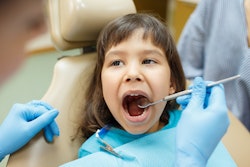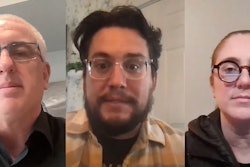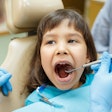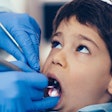
There may be a connection between food insecurity and tooth loss among adults age 50 and older residing in the U.S., according to a new study published on May 8 in the Journal of Public Health Dentistry.
Therefore, investigating the influence of social factors like food insecurity on dental health can contribute to the preservation of oral care in older individuals, the authors wrote.
"There is a need to understand the extent to which social context matters in the oral health of older adults, which is an important step in conceptualizing social interventions aimed at preventing conditions like edentulism," wrote the authors, led by Sophie Li of the University of Washington School of Dentistry in Seattle.
To better understand the relationship between tooth loss and food insecurity, a cross-sectional survey and dental screening were conducted with 216 participants ages 50 years and above residing in Washington. They were enrolled from seven community-based organizations between September 2021 and July 2022.
Of the participants, 7.9% of participants were found to be edentulous. Furthermore, 28.7% experienced low to very low food security. Within the study group, 11.3% of older adults with low to very low food security were edentulous compared to 6.7% with high food security.
In the initial logistic regression model without adjustments, older adults experiencing low to very low food security showed higher odds of being edentulous compared to those with marginal or high food security (odds ratio, 1.77; 95% confidence interval, 0.61 to 5.12; p = 0.30), according to the results.
The findings highlight the critical role of food security in promoting optimal oral health. Dental advice often assumes that patients have access to nutritious foods. However, a lack of food, or access only to low-quality options, can lead individuals to make dietary choices that heighten the risk of cavities and subsequent tooth loss, they wrote.
The study, however, had limitations. Future research should investigate when and why individuals become edentulous. A survey could include questions about past diets, food access, and oral health habits to provide more insights, they wrote.
"This knowledge can ultimately contribute to the development of appropriate food-insecurity-focused interventions that can help address oral health inequities among older adults," Li et al concluded.



















